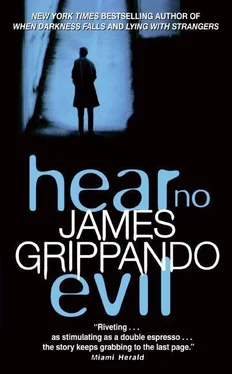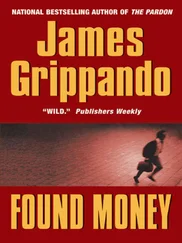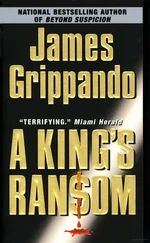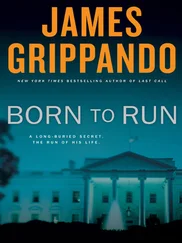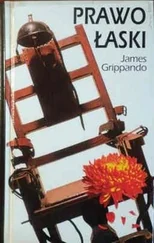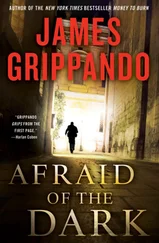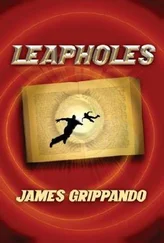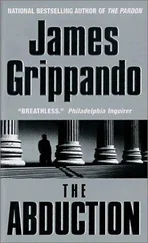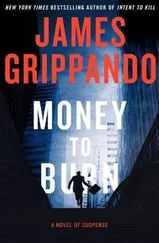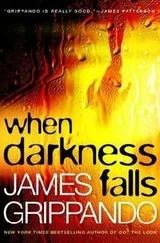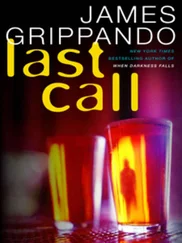“I can relate to that,” said Jack.
“Yeah, I seem to remember an article about you and your old man in Tropic magazine some years back. ‘Why Can’t the Governor Win His Own Son’s Vote?’ or something like that.”
“A lot has changed since then.” He smiled and added, “Though I’m still not sure I’d vote for him.”
Sofia didn’t seem to realize that he was kidding. She was picking the bits of hard-boiled egg out of her salad, adding them to a growing pile of suspicious perishables on a side plate. Finally she looked up and said, “So, are you wondering how I got this case?”
“As a matter of fact, I am. How do you know Lindsey?”
“We were lovers in college.”
“What!”
“Gotchya,” she said with a smile. “Man, you’re easy. Actually, we shared an apartment our senior year at FSU. Kept in touch a few years after that. Then we lost contact, until her husband died. She needed a lawyer, and I guess she remembered that I’d somehow managed to get into law school. I got a phone call a couple of months ago.”
“What did she tell you?”
“Well, she told me about Oscar. We cried together a little. Then she told me about the trust fund he’d left her, and how her father-in-law didn’t want her to have it.”
“Is that how she put it-that Alejandro Pintado didn’t want her to have the family money?”
“Yes. Right from the beginning, she thought that Oscar’s father would stop at nothing to keep her from getting that money. Even if it meant accusing her of murder.”
“I’ve seen plenty of nasty things done for the sake of litigation posturing in my day. But actually pushing for a murder indictment takes the art of saber rattling to new heights, don’t you think?”
“For most people, sure. For Alejandro Pintado…maybe not.”
The waitress came and refilled Jack’s coffee cup. When she was gone, Jack said, “Have you met her son Brian yet?”
“We met for the first time about three days ago. I told Lindsey I needed to interview him if I was going to get involved in the criminal case.”
“I told her the same thing. Didn’t get me very far.”
“She’s very protective of him. If you ask me, she’s truly devastated by what happened to her husband. The last thing she wants is her son getting dragged through the system and ending up with a screwed-up head.”
“I can understand that. How did the interview go?”
“Fine. He’s a wonderful kid. You’ll like him.”
Jack emptied a packet of sugar into his coffee. “What did he tell you about the night his father was shot?”
“Same thing he told the police. Didn’t notice anything unusual during the night. He woke a little earlier than usual. He wasn’t sure why. Something just didn’t feel right. Got out of bed to go to the bathroom. His mom was already at work, but the door to the master bedroom was open. He saw the blood on the bed, then he saw the body.”
“And that was when he called his mother at work?”
“Yes. Well, it was actually a digital page that he typed out. They have a special phone for the hearing impaired.”
“I read the police report last night. Brian was pretty unclear about the exact wording of the message. Has his memory improved on that?”
“All he recalls is that he said something to the effect of ‘Mom, come home, now-emergency!’ ”
“She came right home?”
“Yeah.”
“Then what?”
Sofia finished off a chunk of avocado. “That’s pretty much all the information he has. His mom sent him to his room and wouldn’t let him out until the police came.”
“Does he have any recollection of Lindsey saying anything like, ‘Oh my God, your father shot himself’-anything like that?”
“I don’t think I asked him that.”
Jack hesitated, then asked, “Did you ask him if he shot his father?”
“Not directly. I asked in a more general way if he knew who shot his father, and he said, ‘No.’ ”
“Do you believe him?”
“Yes.”
“Why?”
“I’d know if he was lying.”
“How can you be so sure?”
“I’m a thirty-four-year-old single woman. How many times you think I’ve been lied to? Brian’s ten. He’s no match for me.”
“Hard to argue with that,” said Jack.
“The biggest problem with Brian is not that he hurts Lindsey’s case, but that he’s just not able to help her. He’s deaf, so he’s not going to be able to tell us that he heard his mother definitely leave for work at a certain time, or that he heard noises of a possible intruder. He can’t even tell us what time he heard the gun go off.”
“Disadvantage for us. Advantage for the killer.”
Sofia nodded, seeming to follow his logic. “Which probably means that the killer was fully aware of Brian’s deafness.”
“I’d say so.”
“I guess that’s one of the things you’ll want to establish with some of the witnesses you talk to at Guantánamo: Who knew that Brian was deaf, unable to hear a thing?”
“That’s one of the things on my list,” said Jack.
“What else you got on your list?”
“It’s a work in progress.”
“Oh, come on. What’s right up there at the top? What do you want to know most?”
“What I want to know most is probably something that only Lindsey can tell me.”
“What’s that?”
He thumbed through the forensic report, which he’d read for the first time that morning. “How did her fingerprints end up on the murder weapon?”
Sofia didn’t respond. Jack closed up the report and checked his watch. If they were going to make their AMC flight, it was time to get moving. They pooled their money to cover the tab and left the restaurant together.
The first thing Jack noticed were the stars. Millions of them seemed to pop from the sky the moment he stepped off the airplane. It was the kind of celestial brilliance never seen in the city. You had to be out on the ocean, far from civilization and city lights, floating in the middle of nowhere.
Or in Guantánamo Bay.
The sense of isolation at GTMO (pronounced “Gitmo”) was a product of both geography and military might. The bay itself was a pouch-shaped enclave on the southeastern coast of Cuba, twelve miles long and six miles across at its widest point. The surrounding area was primarily agricultural, mostly sugarcane and coffee. The Cuzco Hills to the south and east and the Sierra Maestra Mountains to the north provided a certain natural shelter. Throw in a five-service task force, a few warships, fighter jets, some well-armed guard towers, and about eight gazillion miles of razor wire, and-voila!-you’ve got a perfect safe haven for many of the indigenous plants and animals that Cuban farmers and developers had virtually wiped out elsewhere on the island. As crazy as it sounded, some of the most unspoiled land in all of Cuba was at the U.S. naval air station. Many a serviceman and -woman had left GTMO thinking that it did indeed belong to iguanas and cactus plants, which only reinforced its reputation as “the least worst place.” That feeling was certainly understandable around the airstrip, which was on the opposite side of the bay from the main base.
Jack and Sofia grabbed their bags, which had been laid out for them on the runway. It was too dark to see much of anything beyond the lighted pathway that led to a green Humvee parked by a large hangar along the airstrip. Lights from the control tower blinked in the distance. Some of the higher hilltops were ghostly silhouettes, backlit by a setting moon. The bay was not far off, Jack knew, not because he could see or hear it, but because he could almost taste the salt in the gentle breezes. Even in the middle of the night, it was mild enough to go without a jacket, and having come from Miami and all its humidity, Jack was pleasantly surprised by the arid climate.
Читать дальше
